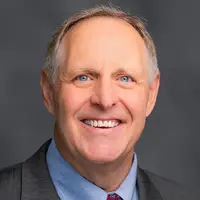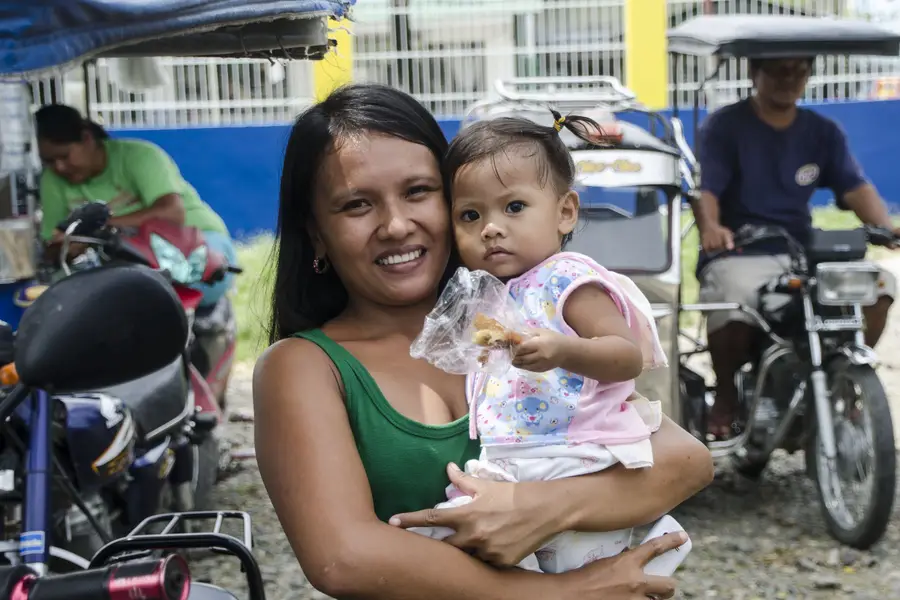Photo Credit: Nathan Gonzales
The Philippines is an emerging leader in the Indo-Pacific region and a critical partner to the United States. We recently traveled to the region and, among other places, visited Palawan, an island in the Philippines still reeling from Super Typhoon Odette’s impact on nature, livelihoods, and homes.
We discussed with partners the work we’re doing together to strengthen systems in the country for energy, health, education, and conservation – systems that require resilience to be able to flex, respond, and rebuild after a disaster like a typhoon strikes.
The development community increasingly talks about systems transformation (or systems strengthening – the terms vary) as a way to foster sustainable development in a more interconnected world with complex challenges.
Transforming systems takes time but the results are well worth it: More sustainable development means more resilient services that can rapidly and agilely meet citizens’ needs, both daily and in the wake of disaster.
RTI’s Collaboration for Transformation in the Philippines
RTI has been working alongside partners in the Philippines to foster systems transformation and strengthen resilience for nearly 40 years. And while we are proud of our deep relationships and understanding of local dynamics, which make our collaborations more impactful, it’s our local partnerships that are carrying this work forward and making transformation possible. They not only provide local capacity and expertise but are also leading advocacy for systems transformation while fostering strong governance and accountability.
In this blog, we share insights from three of the partners we met with who are working to transform the energy, health, and conservation systems in the country.
Translating National Policy into Local Action for Energy Security
The Philippines relies on imported energy and has some of the highest electricity prices in Asia. Extreme heat and other climate impacts are exacerbating this situation and have led to power outages that can last several hours or even days.
Transforming the energy system in the country will provide energy security, sustainability, and accessibility, says Danilo Villas, the executive director of the Philippine League of Local Environment and Natural Resources Officers, Inc. (PLLENRO). “Our country must underscore the importance of energy efficiency and conservation and put this into practice in all sectors,” he says. “Our country also needs to harness its renewable energy potential.”
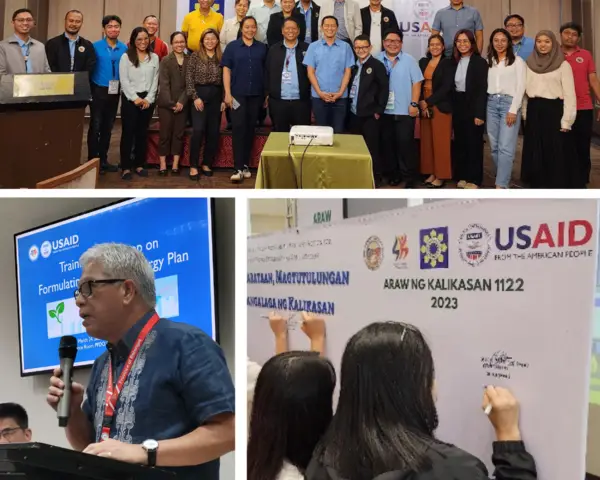
PLLENRO is a local organization working to make this happen. It supports environment and natural resources officers (known as ENROs) in local government departments throughout the country. PLLENRO works at every level of the energy system to transform it, from local government units and their ENROs all the way up to the national government.
“ENROs drive the development and implementation of energy-related initiatives such as local energy codes, energy efficiency and conservation plans, and comprehensive energy strategies,” Villas says. PLLENRO helps these officers leverage their expertise and understanding of local environmental issues to effectively advocate for change and translate national policies into local action.
As a partner on the USAID Energy Secure Philippines activity implemented by RTI, PLLENRO leads work with local government units to develop and adopt energy codes, energy plans, resolutions that support energy governance and efficiency, and implementation of these efforts. PLLENRO also provides platforms for ENROs and other energy stakeholders to exchange best practices and innovative solutions and facilitates learning sessions – all in service of more effective local advocacy and sustainable energy initiatives. These events also help cascade information on the latest national policies and technologies related to energy to more local levels.
PLLENRO’s multifaceted approach to capacity building, advocacy, and collaboration across energy stakeholders is helping to transform the energy system in the Philippines. “We envision an empowered collective of ENROs leading the way in responsible stewardship of the environment, including energy efficiency and conservation efforts,” Villas says.
Providing Personalized Health Care for Families
The Philippines faces difficult challenges to health service delivery given its makeup as a nation of islands. Local organizations like the Integrated Midwives Association of the Philippines (IMAP) are helping to fill gaps and transform the health system. Midwives represent the largest number of maternal health care providers in the Philippines and help supplement the government’s health workforce, especially in hard-to-reach and under-served areas.
Many measures of successful pregnancy are improved when midwives play a central role in care, says Patricia Gomez, IMAP’s executive director. Midwives provide early identification and swift treatment or referral of complications and support across the pregnancy, delivery, postpartum, and breastfeeding periods.
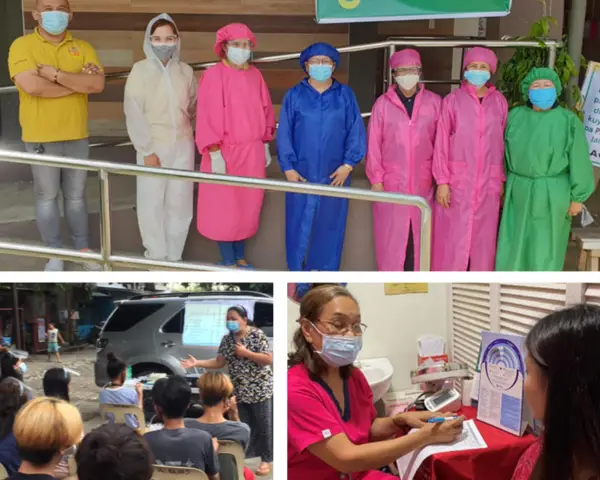
IMAP has a long-standing commitment to improving health for Filipinos and ensuring universal access to quality family planning and reproductive health services across the country. As the professional association for midwives in the Philippines, IMAP offers training and professional development for midwives to help them provide more integrated and personalized care.
“Changes in our society have led to more interest and support for integrated patient care,” Gomez says. “We work together with health agencies, both private and public, to provide this care for women, mothers, babies, and their families.”
Given the range of challenges and conditions midwives encounter in their patients, the care they provide needs to remain fluid and flexible and incorporate community needs along with new scientific knowledge, Gomez adds.
For example, digital technology is increasingly augmenting the health services midwives and others provide. It offers precise, predictive, and preventive measures to manage patient care. Gomez says, “The next wave of care is the use of digital technology.”
IMAP is helping to transform the health system in the Philippines by ensuring midwives can provide higher quality, more integrated care to all areas of the country. “At the heart of what we do is supporting midwives to provide the right care at the right place at the right time,” Gomez says. IMAP is bringing these strengths to the USAID ReachHealth project, helping to extend family planning and maternal care services to more areas.
Gomez sees a bright future for health systems in the country. “The future is more personalized care in the health system,” she says. “More empowered midwives could save more lives.”
Fostering Local Conservation for Climate Protection
Forests are the first line of defense against climate-driven disasters in the Philippines like storm surges and landslides, but they are being cut down at alarming rates.
“The stakes are incredibly high for forest protection and conservation in the Philippines,” says Jose Andres A. Canivel, the executive director of Forest Foundation Philippines, a nonprofit established in 2002 to manage conservation funds in the country. They focus at the most local levels, channeling funding and technical support to local NGOs and other groups to lead transformative projects that address community and environmental needs.
“We put communities at the heart of what we do,” Canivel says. “We envision a future where lush forests are protected and conserved by empowered people.”
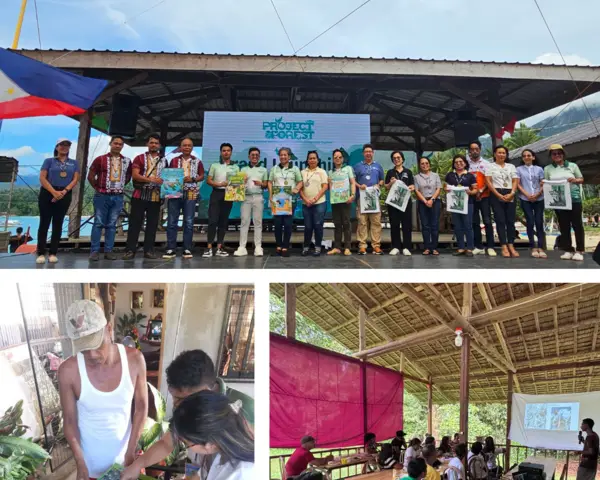
The Forest Foundation Philippines approach involves helping local groups protect and sustainably manage forest landscapes and their associated assets, including water, land, and biodiversity. This bolsters the country’s defenses against climate change’s impact and, in doing so, safeguards the well-being of the most vulnerable and empowers them to become resilient, Canivel says.
To scale impact and sustainability, the organization connects this local action to national goals, policies, and programs through collaborations with national government agencies and development partners.
Forest Foundation Philippines is bringing this approach and their own funding – the result of U.S.-Philippines agreements to convert debt into conservation funds – to the USAID Sustainable Interventions for Biodiversity, Oceans, and Landscapes Activity, ensuring that support, including funding, reach local NGOs and the most vulnerable communities. This ensures that local groups and communities are leading conservation and resilience efforts that benefit their communities and nature at the same time.
“Through equitable participation in conservation efforts, they can contribute to and benefit from improved land productivity, steady water supplies, biodiversity conservation, climate change adaptation and mitigation, and forest-based incomes,” Canivel says. “The overarching goal is to sustain ecosystem services and forest-related climate action.”
Optimism for the Future
While Super Typhoon Odette’s impact loomed large in every conversation we had, the Filipinos we spoke with also expressed optimism about the country’s development. They felt things were headed in the right direction and that, together with the government and other partners, they were optimistically seeing change.
We were left with a sense of hope for the future of the Philippines – a future that will be shaped by innovative and dedicated local partners like PLLENRO, IMAP, and Forest Foundation Philippines, as well as many other groups working to spur positive change across the country.
International partners can support local organizations and groups like these scale transformative changes by shifting more power to them. Following this trip, RTI has continued its engagement with PLLENRO, IMAP, FFP, and 18 other Philippine organizations by hosting a learning workshop in Manila. The workshop created an opportunity to ask our partners for their feedback and recommendations to improve partnerships, ensure that local partners are driving the agenda, and to continue to build an environment that strengthens cross-sectoral collaboration and inclusive development. Through partnership, the future for systems transformation in the Philippines is bright.
Learn more about RTI’s approach to locally led development
Learn more about RTI’s portfolio in the Philippines
